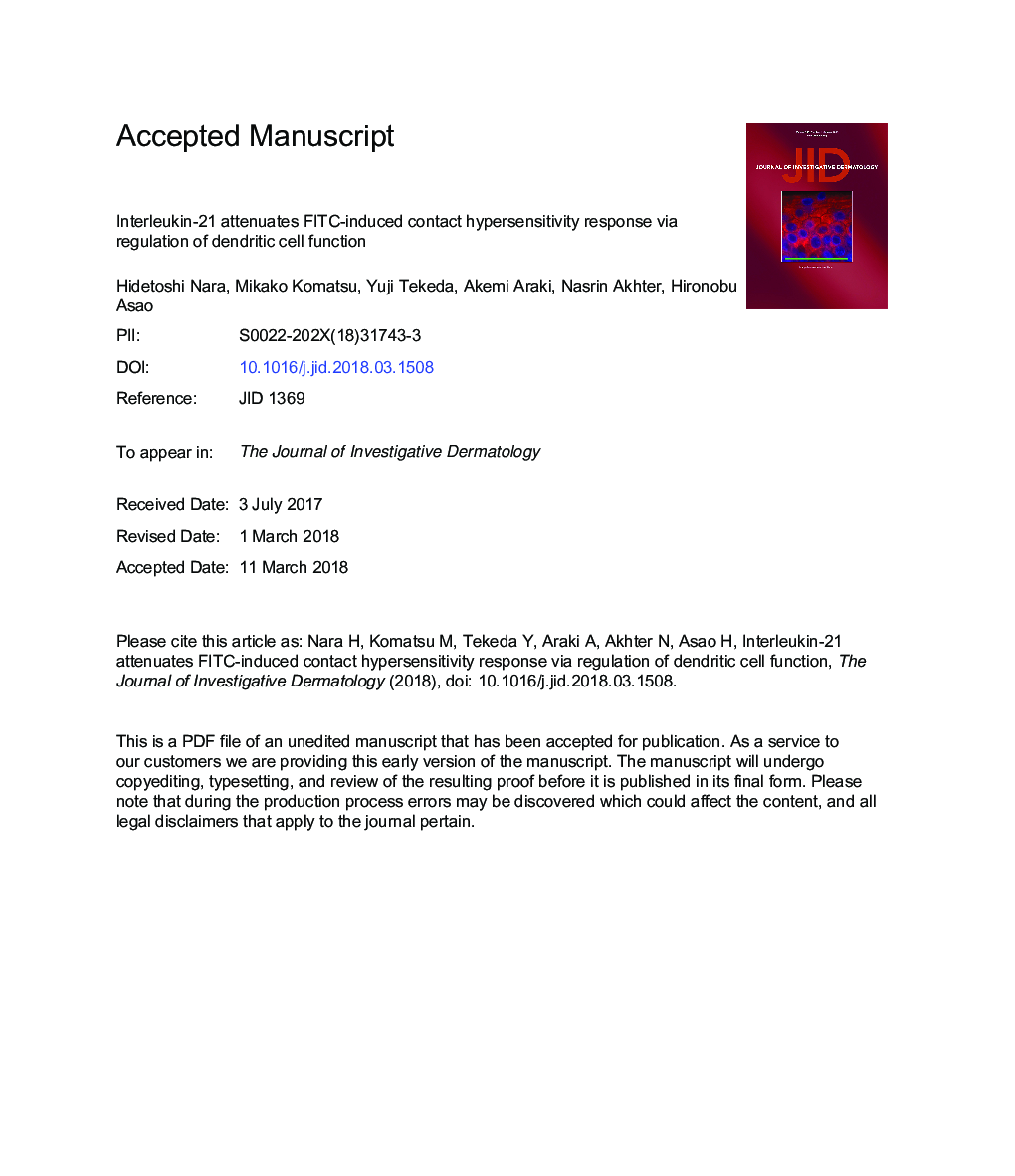| Article ID | Journal | Published Year | Pages | File Type |
|---|---|---|---|---|
| 10216998 | Journal of Investigative Dermatology | 2018 | 30 Pages |
Abstract
IL-21 is mainly produced by activated CD4+ T cells and is involved in the activation of immune cells such as T cells and macrophages. In contrast, IL-21 suppresses dendritic cell maturation. We studied the effect of IL-21 in a mouse model of FITC-induced contact hypersensitivity using IL-21 isoform transgenic (IL-21iso-Tg) mice. Tissue inflammation at 24 hours after elicitation in IL-21iso-Tg mice was significantly weaker than that in wild-type mice. In agreement with tissue inflammation, recruitment of CD4+ and CD8+ T cells, neutrophils, and macrophages into the inflamed tissue was decreased in IL-21iso-Tg mice. In addition, both mRNA expression and protein production of inflammatory cytokines were lower in IL-21iso-Tg mice. In the skin, T cells were activated at inducible skin-associated lymphoid tissue, which is likely a gut-associated lymphoid tissue. The mRNA level of CXCL2, an essential chemokine for inducible skin-associated lymphoid tissue formation, was significantly lower in IL-21iso-Tg mice, and histological analysis showed that dendritic cell clustering, a preliminary step in inducible skin-associated lymphoid tissue formation, was impaired. Our study showed that IL-21 down-regulated inducible skin-associated lymphoid tissue formation and reduced contact hypersensitivity response.
Keywords
Related Topics
Health Sciences
Medicine and Dentistry
Dermatology
Authors
Hidetoshi Nara, Mikako Komatsu, Yuji Tekeda, Akemi Araki, Nasrin Akhter, Hironobu Asao,
